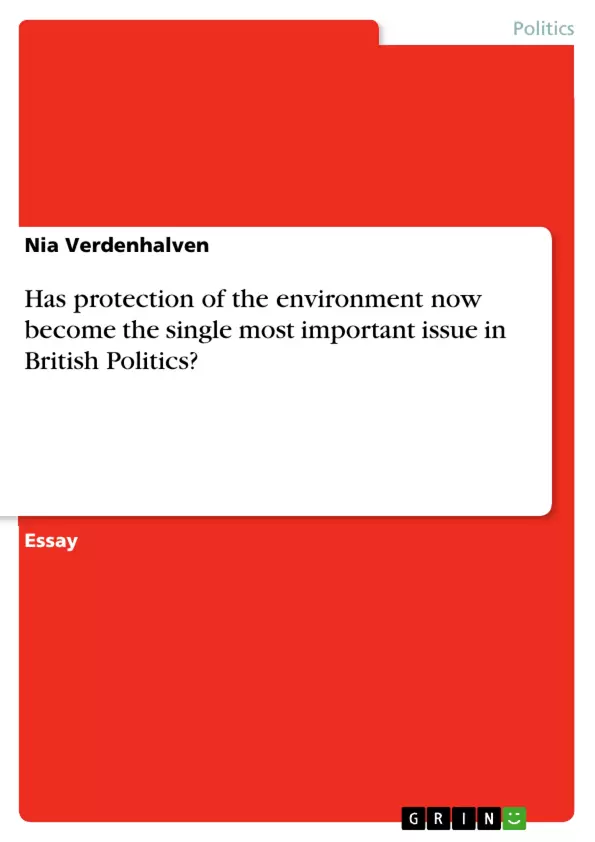In recent years, environmental issues have gained a lot more weight within political agendas all over the world and if one believes the latest developments, Britain’s main political parties have one thing in common: they all claim to have gone green. This essay will examine what is behind the sudden ‘change in colour’, what the real motives of Britain’s ‘environmentally friendly’ parties really are and what the current government has done to tackle climate change. I will attempt to demonstrate that environmental consciousness in British politics, with respect to the two main parties, is used as an instrument to gain the public’s sympathy and that the current government’s performance in sectors, such as waste management and energy efficient housing suggests that there is still a long way to go until the protection of the environment will become an important issue in British politics.
Inhaltsverzeichnis (Table of Contents)
- Has protection of the environment now become the single most important issue in British Politics?
- Introduction
- Environmental Awareness in British Politics
- Politicians' Motivations
- Waste Management and Energy Efficient Housing
- The Increasing Use of Plastic Carrier Bags
Frequently Asked Questions
Is environmental protection the top priority in British politics?
While major parties claim to have "gone green," the essay suggests that environmental consciousness is often used as a tool to gain public sympathy rather than being the single most important issue.
What are the real motives behind parties going "green"?
The essay examines whether political parties are genuinely committed to the environment or if their sudden change in stance is a strategic move to win over voters.
How effective is British waste management?
The author points out that performance in sectors like waste management suggests there is still a long way to go before the UK can be considered truly environmentally friendly.
What is the status of energy-efficient housing in the UK?
Energy-efficient housing is identified as a key area where the government's performance has been insufficient to meet the challenges of climate change.
Why is the use of plastic bags highlighted?
The increasing use of plastic carrier bags is used as an example of the gap between political rhetoric and actual environmental progress in Britain.
- Quote paper
- Nia Verdenhalven (Author), 2007, Has protection of the environment now become the single most important issue in British Politics?, Munich, GRIN Verlag, https://www.grin.com/document/71138



